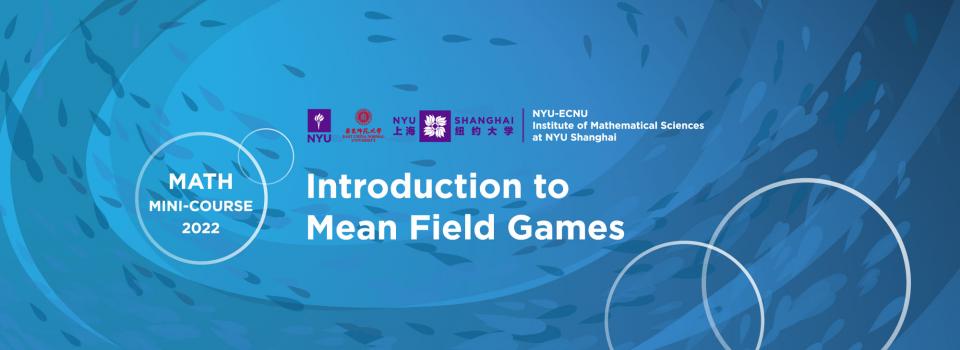
Abstract:
The paradigm of mean field games has been introduced to study games with a very large number of strategic agents. It relies on a combination of mean field theory and optimal control theory. The former, inspired by statistical physics, is useful to describe the state of the whole population. The latter provides a framework to study the behavior of a representative agent. The solution to a mean field game corresponds to a Nash equilibrium. It can be characterized using a forward- backward system of (partial or stochastic) differential equations. In the past decade, the theory of mean field games has been extensively developed. Furthermore, this paradigm has found many potential applications, from economics to sociology or distributed robotics. In this mini course, we will provide an overview of the following aspects of mean field games (tentative list):
1. Mean field game models
2. Optimality conditions
3. Numerical methods
Biography:
Mathieu Laurière is an Assistant Professor of Mathematics and Data Science at NYU Shanghai. Prior to joining NYU Shanghai, he was a Postdoctoral Research Associate at Princeton University in the Operations Research and Financial Engineering (ORFE) department. He obtained his MS from Sorbonne University and ENS Paris-Saclay and his Ph.D. from the University of Paris. Before joining Princeton University, he was a Postdoctoral Fellow at the NYU-ECNU Institute of Mathematical Sciences at NYU Shanghai. Most recently, Mathieu was a Visiting Faculty Researcher at Google Brain, for the Brain Team (Paris).
Seminar by the NYU-ECNU Institute of Mathematical Sciences at NYU Shanghai


